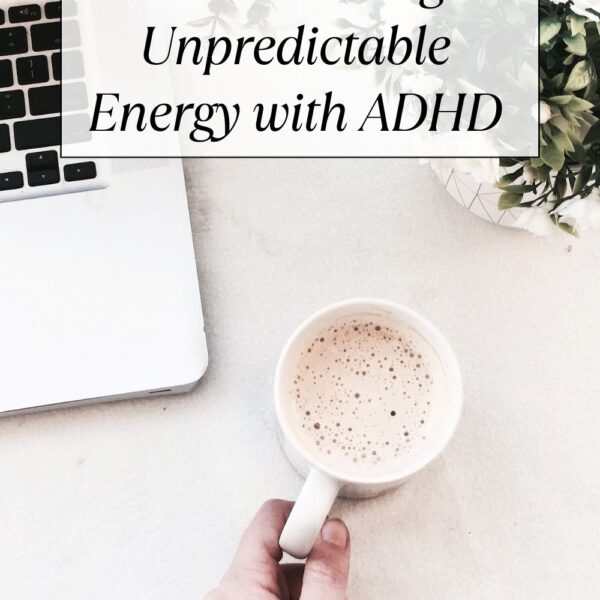Head's up, there could be affiliate links ahead!
Today, I’m addressing a problem I’ve seen in every ADHD client I’ve ever worked with – exhaustion and burnout.
Why Does ADHD Energy Have to be Managed so Closely?
Because ADHD is an executive function issue, it means that it takes a LOT more energy for us to do things that a neurotypical person does quite effortlessly. Not always, but very often, we have to try harder to do often mundane tasks. It’s not because we’re not smart or capable – but because we may not have enough “dopamine in the tank” to get the task done. That means we have to push ourselves extra hard…. often too hard.
This is just one example of why ADHD energy is something that should be managed carefully. We also deal with a lot more emotional disregulation which can be draining, to say the least.
Energy Management and ADHD Specific Self-Care
The first thing you need to know is that feeling constantly exhausted and burned out is not natural or normal. It’s a sign that you need to focus on energy management and ADHD specific self-care, which can be very different from the self-care you see on Instagram.
Executive Function Issues and Exhaustion

So, why are we so prone to burnout and exhaustion? It has to do with the executive function issues that we typically struggle with. For example, working memory. When we forget things over and over again, it creates more problems in our lives, leading to cognitive exhaustion.
ADHDers also struggle with self-regulation and emotional regulation. We’re not really good at self-soothing and navigating big emotions, which can lead to emotional exhaustion. And all these contribute to the burnout cycles that we often find ourselves in.
Interoception and the Burnout Cycles
A lot of us struggle with interception, which is the ability to feel what’s going on in our body at any given time. So, we may not know when we’re tired, hungry, or thirsty and need to rest, eat, or drink. We just keep pushing and pushing until our body has nothing left to give, and this can lead to physical, emotional, or cognitive burnout.
So, What Can We Do About It?
Well, that’s the million-dollar question, isn’t it? While I don’t have any magic pills to end the cycle of burnout and exhaustion for good, I can share some tools that can serve as a good starting point.
Start Journaling
The first tool I’m going to share is journaling. Yes, I know, half of you are rolling your eyes right now because you don’t want to journal. But hear me out. Journaling is a fantastic way to get your thoughts out of your brain and onto paper. You could also use a voice recorder if you prefer to verbally process.
The exercise is simple. Make a list of the things in your life that are draining your energy. Then, make a second list of everything that gives you energy. Once you have these lists, you can begin to make more intentional decisions about what you engage with and start reducing those energy drains.
Reflect + Record Past Successes
Another exercise I recommend is reflecting on a time in your life when things were going really well. Document the circumstances around that period, especially the things that you had control over. These insights can guide you towards what works for you and what doesn’t, helping you create a system of self-care and energy management that works for you and your life.
Adopt ADHD-Friendly Self-Care Practices
For ADHDers, self-care is about cultivating a life and an environment that is supportive rather than destructive or energy draining. It’s about addressing your own unmet needs. This is what will help you avoid exhaustion and burnout, and lead a more fulfilling life.
Recommended Resource
Check out the book Self-Care for People with ADHD: 100+ Ways to Recharge, De-Stress, and Prioritize You! by Sasha Hamdani. There’s lots of great ideas for energy management that I found really useful and relevant.
In the next blog post, we will tackle another pillar: time management and productivity for ADHDers to avoid feelings of overwhelm and procrastination. I hope this post was helpful, and I can’t wait to see you in the next one!






Leave a Comment